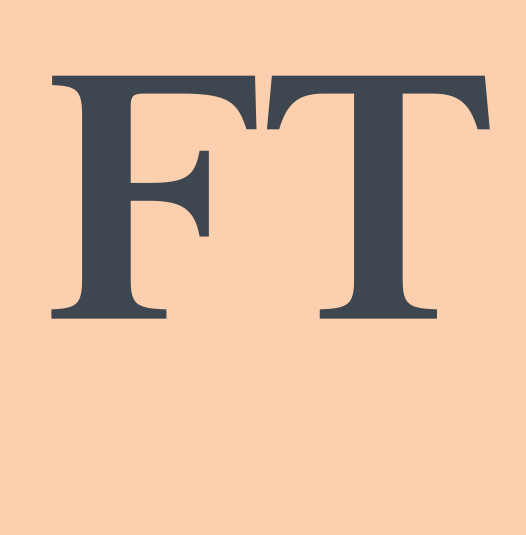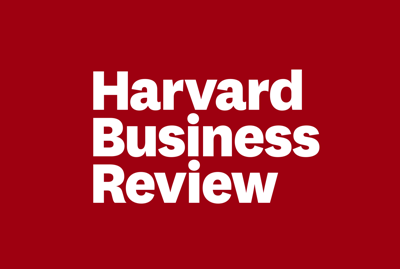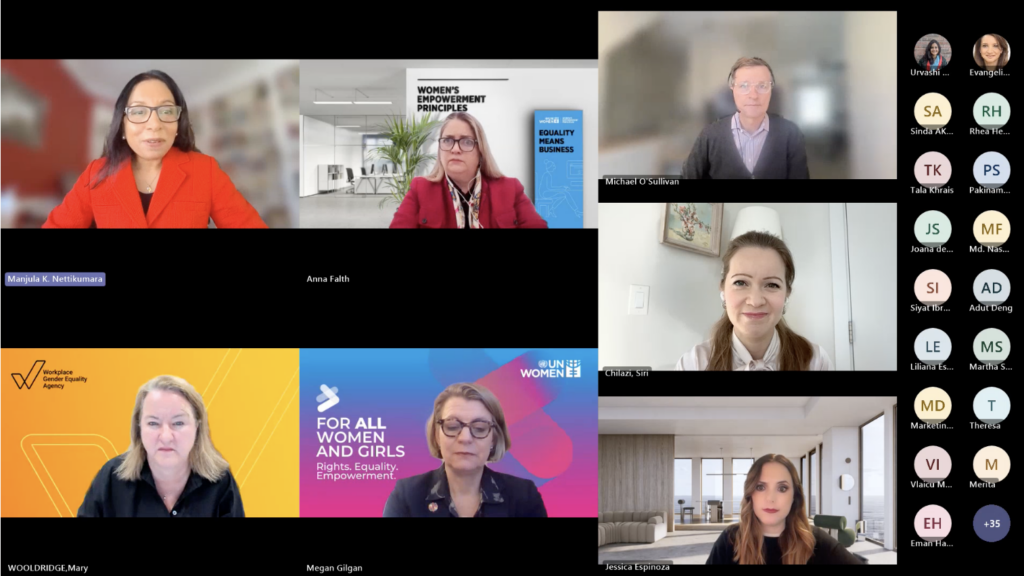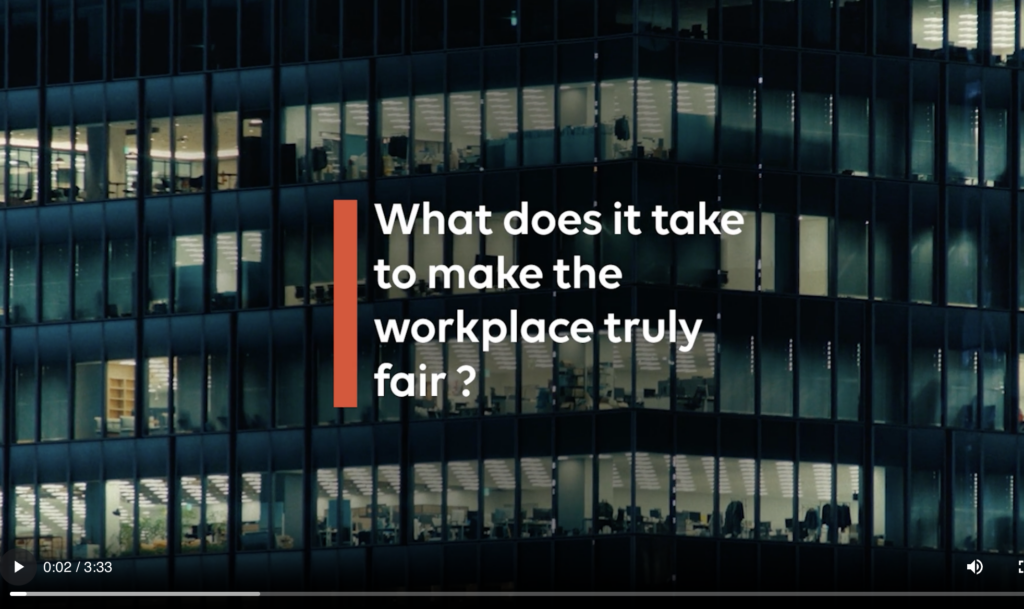News
The Latest
- All
- Articles
- News
- Podcasts
- Videos
Most organizations approach culture change through training and communication, assuming that if you educate people and build their skills, you can expect action. But people’s behavior rarely changes this way. To drive real impact, follow a scientific approach using the “4T” model.
VIEWBehavior is at the heart of nearly every challenge in the workplace, from leadership and fair decisions to high performance and AI adoption. But how should organizations go about influencing behavior?
VIEWWelcome to our selection of Notable Books for 2025. Each year, we review hundreds of newly published titles that cover the science of human behavior.
VIEWThe Society for Advancing Business Editing and Writing (SABEW) proudly announces the winners and finalists for its sixth annual Best in Business Book Awards, which recognizes and celebrates outstanding business journalism in books published between August 1, 2024, and July 31, 2025.
VIEWPeople with similar skills and qualifications may have very different experiences achieving success in the workplace on the basis of many factors, including gender and other aspects of identity. And organizations have struggled to make their practices—from hiring to promotions—fairer.
VIEWLast year, American women working full-time jobs earned, on average, 80.9 percent of what men earned. It was the second year in a row that the pay gap widened, according to the Census Bureau. Black and Hispanic women have, for decades, made the least of any groups.
VIEWIn the current climate, generic and expensive programs to promote diversity, equity, and inclusion—for example, trainings—are increasingly falling out of favor. In fact, most of the existing research suggests that trainings have not been effective at changing people’s behaviors or measurable organizational outcomes, such as who gets hired. Yet, what hasn’t changed is companies’ need to tap into the broadest possible talent pool to hire the best person for the right role at the right time.
VIEWWege zu finden, um den gesamten Talentpool nutzen und eine produktive Zusammenarbeit ermöglichen zu können, ist entscheidend für Wirtschaft, Gesellschaft und Politik. Rund 40 Prozent des Wachstums des BIP pro Kopf in den Vereinigten Staaten ist darauf zurückzuführen, dass die Beschränkungen, die talentierte Menschen in den 1960er-Jahren vom Arbeitsmarkt fernhielten, heute nicht mehr gelten.
VIEWGuest: Siri Chilazi, MBA, MPP, Senior Researcher at the Women and Public Policy Program at Harvard Kennedy School
Interviewer: Douglas Riddle, PhD, Dmin, FAPA, Curriculum Director of The Carol Emmott Foundation
VIEWDespite decades of diversity training, real workplace fairness remains elusive. Iris Bohnet and Siri Chilazi explain how to truly level the playing field, we must understand why current approaches fall short, paving the way for evidence‑based solutions that create lasting change.
VIEWLife can be difficult, so we could all use ways to make our lives and jobs easier. Or, perhaps, more fair. Believing in fairness is great, but it’s not enough. Behavioral scientist Iris Bohnet and gender expert Siri Chilazi generally do an excellent job throughout Make Work Fair in giving readers proven methods to do just that.
|
When Sandra Day O’Connor, the first woman to serve on the US Supreme Court, graduated from law school in 1952 as one of the top-ranked students in her class, she became a legal secretary. Not because she wanted to, but because this was the only job available to her at the time.
VIEWThere are moments in a career conversation—whether it’s a job interview, a pitch for freelance work, or a conversation with a potential client—where everything seems to be going fine. Until something shifts.
Due to Trump’s policy, many US corporations have scaled back or even ended their anti-discrimination programs. Now European corporations are also feeling the pressure. Is workplace diversity a thing of the past?
VIEWYou won’t find workplace norms in the employee handbook, but they shape how things actually get done. From how promotions happen to how meetings are run, unspoken expectations influence behavior—and in uncertain times, clear norms matter more than ever. If you want a fairer culture, you need to help define what “normal” should be.
VIEWPhoebe Gates, 22, is not a typical entrepreneur. She’s the daughter of Bill and Melinda Gates and a Stanford University graduate navigating the minefield of Silicon Valley fundraising.
VIEWThink of all the times you started a new job. You probably learned about key policies and formal processes around things like vacation time. But employee manuals don’t teach other things, like whether you should advocate for a promotion or wait to be asked, how quickly colleagues expect email replies, or if meetings start on time or three minutes after the hour.
VIEWEvery day brings disturbing new headlines about how the federal government, agencies and contractors, universities, and many business leaders are scrambling to comply with the Trump administration’s vehement and wholesale attack on diversity, equity, and inclusion.
VIEWAs humans, we are wired for fairness. We need fairness to survive in groups and build trust and reciprocity as a social species. This is why young children understand the importance of fairness, commonly citing “this is not fair” in protest for new rules or unpopular demands.
VIEWWork takes up a hefty chunk of our limited time. Ideally, a job not only supports a vibrant life off the clock, but also sparks joy in and of itself.
VIEWSiri Chilazi’s life’s work is to advance gender equality in the workplace. And at a time when the Trump administration is attacking diversity, equity, and inclusion efforts and when many corporations are dropping or backing away from previous commitments to equity, Chilazi is surprisingly hopeful.
VIEWLondon Business School’s Leadership Institute recently hosted a compelling book talk featuring behavioural economist Dr Iris Bohnet and gender equity expert Siri Chilazi. They discussed their latest work, Make Work Fair with Aneeta Rattan, Professor of Organisational Behaviour at LBS.
VIEWHKS experts use insights from behavioral economics to examine how to build workplaces that work for everyone.
VIEWWhy organisations need to remodel their performance evaluation and promotion processes to assess and reward performance more accurately
VIEWA global consulting firm sought to equalize gender representation in its senior ranks, where women made up only around 10% of partners.
VIEWHarvard researcher Siri Chilazi reveals how evidence-based workplace redesigns can accelerate gender equality—if businesses commit to systemic change
VIEWThe backlash to DEI represents an opportunity, not a setback, in our quest to create better companies
VIEWWorkplace gender equality is still stuck: despite corporate pledges, pay gaps, bias and unequal promotions persist. HR leaders must take real action – starting now, says Siân Harrington. International Women’s Day should not be a corporate branding exercise. Yet every year businesses roll out well-meaning statements about gender equality while the data tells a different story.
VIEWThe crux of making work fair is that it must be part of every single person’s job.
VIEWSiri Chilazi and Iris Bohnet explain why inclusivity of opportunity is a key goal for businesses looking to remove unconscious bias and help young workers thrive
VIEWSystemic change isn’t about trying to “fix” or “change” minds. Instead, it’s about giving people the tools and structures they need to improve.
VIEWAs attacks on diversity, equity, and inclusion (DEI) escalate, Harvard researchers Iris Bohnet and Siri Chilazi share a powerful tool to make hiring and promotions more fair without incurring unnecessary legal risk: clarity.
VIEWLeading Gender Experts from Harvard Explore Workplace Fairness and Solutions to Achieve It
Why This Book Matters
DEI training has existed since the 1960s but research shows that efforts to de-bias people rarely bring success – to make change for a fairer world we must de-bias the systems which underpin our workplaces and societies. Written by Iris Bohnet and Siri Chilazi, two leading gender experts from the Women and Public Policy Program at Harvard Kennedy School.
VIEWThe best way to make America great again? Make America fair again
VIEWThere are a few simple ways to make interviews and other assessments more effective and fair.
VIEWBy designing smart systems, we can help ourselves live up to our best intentions — and perform even better in our workplaces.
VIEWMost diversity initiatives didn’t work very well. But there are programs that can work better.
VIEWGeneric diversity training has largely failed to create more diverse workplaces. However, more targeted training offered at key points can bring the changes companies seek, according to new research by Harvard Business School Assistant Professor Edward H. Chang.
VIEWI’m pleased to share what I consider the most promising, must-read nonfiction titles scheduled for release in January 2025. These titles make up our second group of nominees for Season 26 of the Next Big Idea Club.
VIEWOne thing we can all control this year is the information that we let into our heads. As I reviewed this winter’s new releases, I had three filters: screen out what’s inaccurate, impractical, and uninteresting. My recommended reads to start 2025 are brimming with thought-provoking ideas and data points—and they won’t put you to sleep.
VIEWVIEW
In his annual letter to shareholders this April, JPMorgan Chase chief executive Jamie Dimon reaffirmed his bank’s commitment to its diversity, equity and inclusion efforts, saying that they “make us a more inclusive company and lead to more innovation, smarter decisions and better financial results for us and for the economy overall”.
VIEWHannah Williams asks strangers to share their salaries and then broadcasts those figures to the 1.3 million followers of her TikTok channel, Salary Transparent Street.
VIEWNew report examines myths hampering advancement of women in workplace, actual barriers, and possible solutions
VIEWMost people don’t think of themselves as biased or prejudiced, and people often explicitly endorse diversity as something companies should strive for.
VIEWWhat do women do once they achieve leadership positions? How do we advance gender equity and equality in the workplace?
VIEWYou’ve likely taken part in a workplace training that describes how to recognize and avoid microaggressions.
VIEWWomen in business are half the population but one-tenth the voice. This is why gender balance is a critical factor in building an effective and competitive business.
VIEWWe speak to researcher and speaker Siri Chilazi from Harvard Kennedy School about achieving equality in the workplace with behavioural science.
VIEWOver the past decade, a number of companies have moved toward disclosing their workforce’s demographic data, seeking to be more transparent and to signal a commitment to diversity, equity and inclusion.
VIEWPeople have a hard time hiring people outside of their comfort zone.
VIEWHow can we foster inclusive and equitable organizations?
VIEW
Laura* was a well-regarded division manager ready for a new opportunity, but none seemed to come her way.
VIEWConsider the following scenario: A company’s entry-level workforce is approximately half women and half men, but the proportion of women drops slightly at every level.
VIEWIn homogeneous organisations, even the most talented hires can feel tokenised. It’s a problem that hits everyone hard.
VIEWIn 2014, several large tech companies including Apple, Facebook, Google, and Microsoft started releasing annual diversity reports detailing their workforce composition.
VIEWRos Atkins felt stuck. The career BBC journalist felt that he and many of his colleagues had “accepted that representing women equally in our journalism was a desirable goal, but also accepted that it wasn’t possible,” he said.
VIEWOn our next episode we speak to Iris Bohnet, the Academic Dean of Harvard Kennedy School and author of the book What Works: Gender Equality by Design.
VIEW



